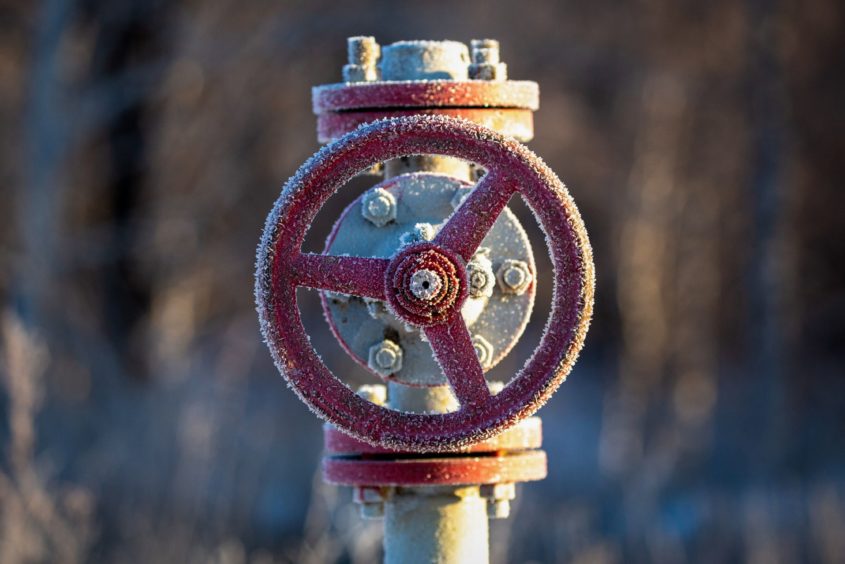
European gas surged to the highest level in a month, fueling wider inflation concerns, as delays to a controversial new pipeline from Russia stoked fears of a supply shortage this winter.
Benchmark futures climbed as much as 8.1%, extending an 18% surge on Tuesday when Germany’s energy regulator suspended the certification process for the Nord Stream 2 link until it creates a local subsidiary for the section of the pipeline in the country. The move raised concerns that Europe won’t be able to get the supplies it needs in the coming months.
“Adding insult to injury, short-term weather forecasts point to below seasonal temperatures in Europe into early December while Russia looks set to be warmer,” Ole Hansen, head of commodity strategy at Saxo Bank A/S, said in a note.
With Europe facing its first winter cold spell, consumers are bracing for high energy bills. Surging costs pushed euro-zone inflation to a 13-year high in October, stirring fears about an economic slowdown. Inflation also spiked in the U.K.
Gas shipments from Russia have recovered after a slump at the start of November but remain low compared with last year. The nation has signaled it has little appetite to boost volumes that enter Europe via other territories, noting that the start of Nord Stream 2 would ease the continent’s energy crunch.
The new German entity is now required to restart the process of gaining a permit to run the link. It will be 100% owned by Nord Stream 2 AG, the Swiss unit of Gazprom PJSC, meaning the Russian giant is opting for full ownership instead of bringing in partners, according to to a person familiar with the discussions. Certification may be completed around April next year at the earliest because of the delay, according to Norwegian consultants Rystad Energy AS.
Dutch month-ahead gas rose to a high of 101.82 euros a megawatt-hour, the highest for a most-active contract since Oct. 18, and was up 7% as of 3:36 p.m. in Amsterdam. The U.K. equivalent added 5.4% to 252.91 pence a therm.
Spot liquefied natural gas prices in Asia are also surging amid a shortage of ships, meaning less fuel potentially available for Europe.
Russia’s Promise
Europe’s heating demand should spike with the cold spell looming. “Potentially and under normal circumstances” it’s a good incentive for Gazprom to ship more gas to the region, according to Saxo Bank. But delays to Nord Stream 2 are fueling fears that Russia will not keep its promise of higher deliveries, Commerzbank AG analyst Barbara Lambrecht said in a note.
Gazprom will meet its contractual obligations, but any extra shipments on existing routes will depend on requests from European clients and the company’s “readiness” to fulfill them, Kremlin spokesman Dmitry Peskov said Wednesday. He added that the operator of Nord Stream 2 is ready to fulfill all the regulatory requirements to get gas flowing through the pipeline “as soon as possible.”
Supplies may increase in the first quarter, even if Nord Stream 2 is not yet operational, as many Gazprom’s clients would have the flexibility to call for higher flows from January, analysts at Goldman Sachs Group Inc. said in a note. Yet, the longer the shortfall of Russian supply into Northwest Europe lasts, the more the market “will have to rely on high gas prices to generate enough demand destruction to help balance inventories through the winter,” they said.
Recommended for you
